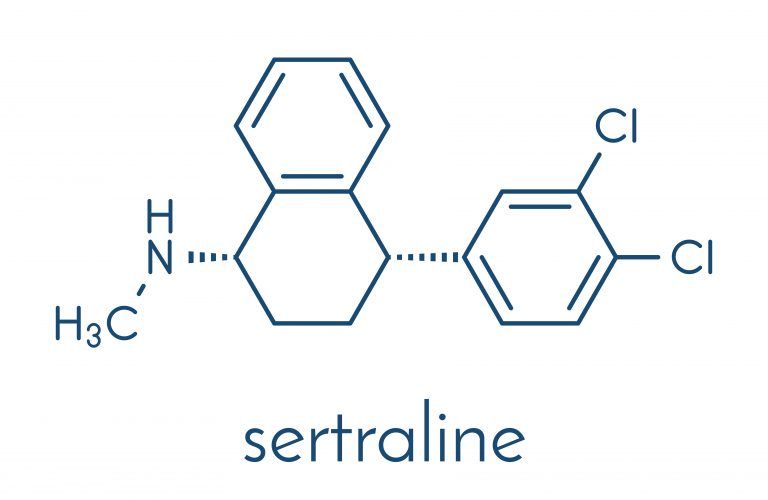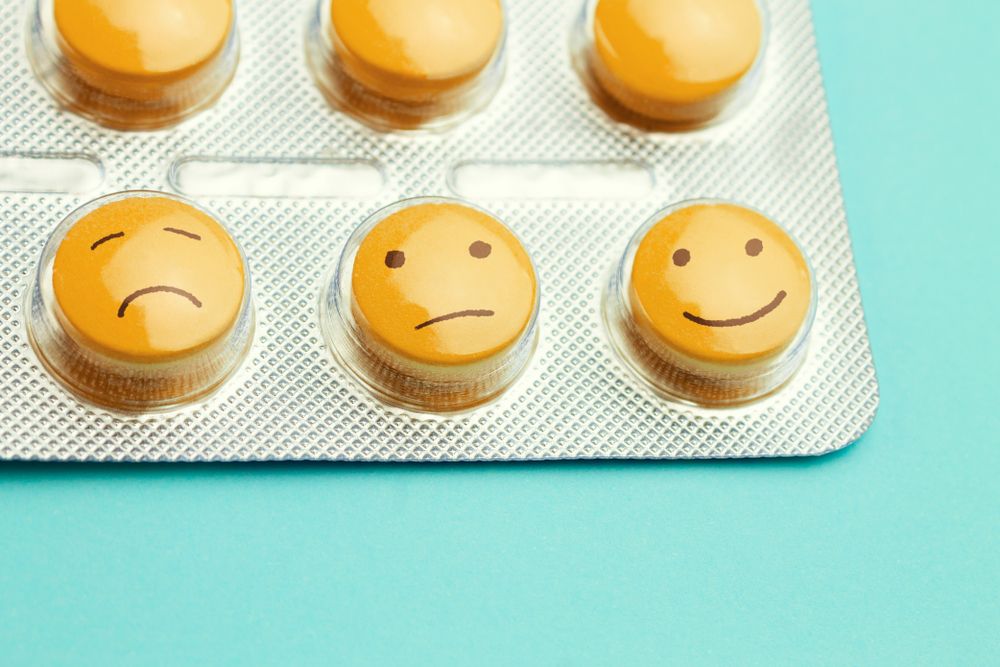How Effective Is Sertraline for Treating Premature Ejaculation?
Premature ejaculation (PE) happens when a man climaxes and ejaculates before he wants to during a sexual encounter. While occasional PE is normal, continuously experiencing this issue indicates a medical condition that can wreak havoc on your self-esteem and sex life. (Learn More) Most cases of premature ejaculation are caused by psychological issues like depression, anxiety, and trauma. More rarely, PE may be caused by physical problems like thyroid problems or multiple sclerosis. (Learn More) Sertraline is an antidepressant medication that boosts feelings of well-being by affecting the levels of serotonin, a neurotransmitter linked to mood. Since many cases of PE are caused by depression and anxiety, antidepressant treatment may be helpful in overcoming premature ejaculation. Delayed ejaculation may also be a physical side effect of sertraline. (Learn More) While research into premature ejaculation treatment is currently ongoing, it has indicated that sertraline may be an effective medication option for those suffering from the condition. (Learn More) Common side effects of sertraline may include insomnia, fatigue, and decreased sex drive. There are some serious side effects and possible risks with sertraline use, including suicidal thoughts, impulsive behavior, and new or worsened depression. (Learn More)

Understanding Premature Ejaculation
When a man reaches climax and ejaculates too quickly, without control, this is premature ejaculation (PE). Any time an ejaculation happens more quickly than a man desires, it may be considered premature ejaculation. This means premature ejaculation can occur at any time during a sexual encounter, including during foreplay and while beginning intercourse. Many men are afraid to address the topic of premature ejaculation, but it’s actually a very common issue among men. In fact, it’s estimated that as many as one in five males will experience a problem with premature ejaculation at some point in their life. While occasional ejaculation problems are likely no cause for concern, especially during times of anxiety or overexcitement, continuous premature ejaculation may be considered a medical problem when it becomes an ongoing issue that affects relationships or self-esteem.
What Causes Premature Ejaculation?

There are many psychological conditions that can cause premature ejaculation. Most often, premature ejaculation can be attributed to a psychological problem, including stress, relationship problems, and depression. For some men, this can lead to a destructive cycle. For example, a man’s stress and depression cause a premature ejaculation problem. Then, the frustration and shame from the premature ejaculation problem make him even more stressed and depressed. There may also be a layering of psychological problems. For example, a depressed male may have just a few instances of premature ejaculation due to lack of experience, but he may see it as a larger issue due to his depression. This can affect his self-esteem and make his depression worse, leading to a more serious premature ejaculation problem. Psychological causes of premature ejaculation may include the following:
Stress in a relationship
Overstimulation
Sexual inexperience
Anxiety
Guilt or shame
Body image problems or eating disorders
Past trauma
Problematic sexual upbringing or conditioning
Most cases of premature ejaculation are caused by psychological problems. However, some men do experience premature ejaculation as the result of a physical or biological cause.
Diabetes or blood sugar problems
Multiple sclerosis
Prostate problems
Alcoholism
Drug use or certain prescription medications
Thyroid or hormone problems
What Is Sertaline?
Sertaline is an antidepressant medication prescribed for major depressive disorders and conditions that include post-traumatic stress disorder (PTSD), premenstrual dysphoric disorder, and some anxiety and panic disorders. Sertaline is classified as a selective serotonin reuptake inhibitor (SSRI). It works by affecting the way serotonin — usually referred to as a chemical neurotransmitter, though some consider it a hormone — is absorbed. Serotonin plays an important role in many functions of the body and central nervous system. Although serotonin’s exact link to depression is not fully understood, the connection between lower serotonin rates has long been studied and considered a factor in depression treatment in medication. SSRIs slow the reabsorption of serotonin. As a neurotransmitter, serotonin transmits “messages” (electric impulses) from one neuron to another before being quickly reabsorbed. SSRI slows that reabsorption, allowing serotonin to stay in that in-between-neuron place (known as the synaptic gap) for longer. The serotonin gets to send more messages to the receiving neuron, and this is thought to have an antidepressant, mood-enhancing effect. Because most psychological causes of premature ejaculation (PE) relate to depression and anxiety, sertraline’s antidepressant and mood-boosting properties are thought to be an effective treatment option for many men who suffer from PE. In addition, one of sertraline’s physical side effects may be a delay in ejaculation.

Is Sertaline Effective in Treating Premature Ejaculation?
Research on premature ejaculation and its best treatment is ongoing. However, research has indicated that Sertaline shows promise as a treatment for premature ejaculation, and it may be more effective than other SSRIs.
Does Sertaline Have Any Dangers or Side Effects?
More common side effects of sertraline may include the following:
Nausea and digestion problems
Insomnia or other sleeping problems
Decreased sex drive
Shakiness and tremors
Fatigue
Increased agitation
Changes in weight
Sertaline may also have more serious dangers and side effects. The Food and Drug Administration (FDA) has labeled sertraline with a “black box warning” due to the possibility that it may cause suicide and suicidal thoughts. A black box warning is the most serious warning label from the FDA, alerting medical professionals and patients about potential dangers. Because of this danger, it’s very important that you talk openly and honestly with your doctor about any issues before beginning sertraline. You should also discuss any mood changes you experience while taking sertraline with your doctor. Serotonin-affecting drugs like sertraline may cause serotonin syndrome, a serious and possibly life-threatening condition that can cause hallucinations, increased heart rate, vomiting, seizures, and muscle tremors. The following are other serious side effects:
Acting impulsively
Aggressive behavior or violence
Increased anxiety or panic
New or worsened depression
Manic episodes
Seizures
Sertraline may also interfere with other drugs, so you should discuss any other medications or supplements you are taking with your doctor.
References
Premature Ejaculation. (May 2017). Harvard Medical School.
Premature Ejaculation: Treatment and Causes. (December 2017). Medical News Today.
What Is Zoloft (Sertaline)? (October 28, 2014). Everyday Health.
What Is Serotonin and What Does It Do? (February 2, 2018). Medical News Today.
What Has Serotonin to Do With Depression? (June 2015). World Psychiatry.
How Zoloft (Sertaline) Works. (March 15, 2019). Verywell Mind.
Antidepressants and Ejaculation: A Double-Blind, Randomized, Placebo-Controlled, Fixed-Dose Study With Paroxetine, Sertaline, and Nefazodone. (June 2001). Journal of Clinical Psychopharmacology.
Treatment of Premature Ejaculation with Sertaline Hydrochloride. (September 1998). International Journal of Impotence Research.
Comparison Between On-Demand Use of Sertaline and Dapoxetine for Treatment of Patients with Premature Ejaculation. (December 2016). Human Andrology.
Sertraline, Oral Tablet. (March 30, 2017). Healthline.

Related Articles

Saw Palmetto for Hair Loss: What the Science Shows
Saw palmetto is a small tree that grows in southeastern...

Metformin & Hair Loss: What Does the Science Indicate?
Metformin is a treatment for type II diabetes. One of the...

Using Tretinoin for Wrinkles and Aging (Dosage & Other Info)
Tretinoin is a retinoid, a class of vitamin A-based drugs...

Pros and Cons of Trintellix vs. Other Antidepressants
Trintellix is an atypical antidepressant medication...
